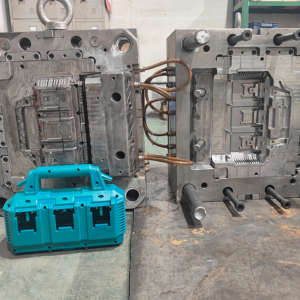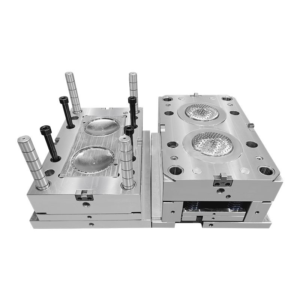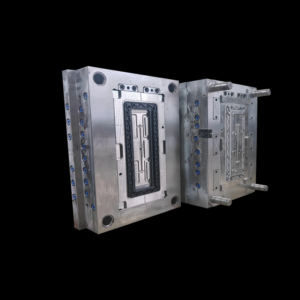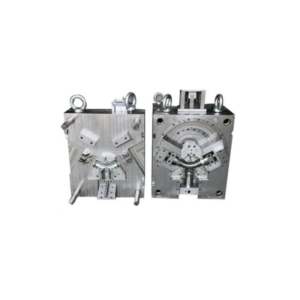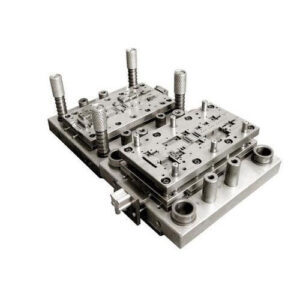Overview:
2K Plastic Injection Molding combines two materials into one part, ideal for electronic household applications like consumer electronics. It offers enhanced aesthetics, ergonomics, durability, and functionality, including water resistance and electrical insulation. As a trusted supplier and manufacturer, we provide OEM custom services, delivering high-quality, precise 2K molds to meet all your production needs.
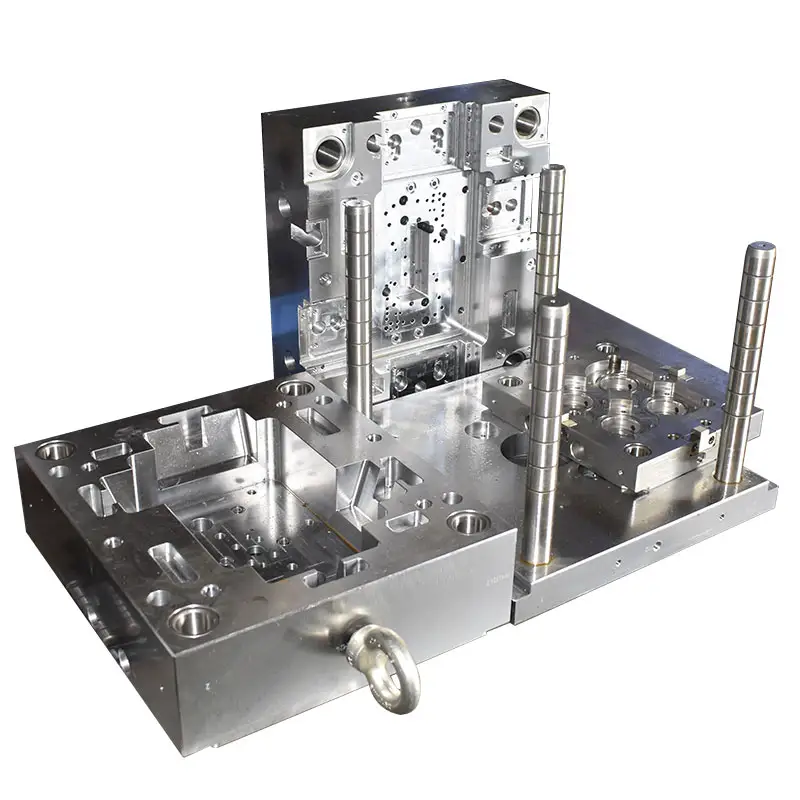
Features:
- Mold Type:Plastic Injection Mold
- Mold Material Options:P20, 718, 738, NAK80, S136
- Mold Base Standards:HASCO, DME, MISUMI, JIS, LKM, etc.
- Mold Runner System:Cold Runner / Hot Runner
- Mold Gate Options:Slide Gate, Sub Gate, Pin-point Gate
- Cavity:Single or Multi-Cavity
- Design Software Supported:UG, PROE, CAD, SOLIDWORKS
- Molding Equipment Used:CNC, Wire Cutting, Milling Machine, EDM
- Compatible Raw Materials:ABS, PP, PC, PA6, PA66, PVC, POM, PMMA, PS, etc.
- Packaging Method:Wooden pallet or carton
- OEM Services:Available—please provide 2D/3D files or samples
- Lead Time:Approximately 30 days
Production Process:
-
Design and Conceptualization
The process starts with the creation of a detailed 3D mold design using CAD software (e.g., SOLIDWORKS). Design requirements, material compatibility, and functionality for electronic household applications are considered.
-
DFM (Design for Manufacturability) Analysis
A DFM analysis is conducted to identify potential design issues and optimize the mold for efficient production, ensuring the design is manufacturable and cost-effective.
-
Mold Fabrication
The mold is fabricated using high-precision equipment such as CNC, EDM, and wire cutting, with the integration of cold or hot runner systems and appropriate gating options (e.g., slide or pin-point gates).
-
Material Selection and Testing
Materials (e.g., ABS, PA6) are selected based on the part’s requirements, and sample testing is conducted to ensure compatibility and proper material flow during molding.
-
Prototype and Sample Production
Prototype parts are produced to evaluate part quality, appearance, and functionality. Adjustments are made based on the sample results.
-
Adjustments and Refinements
Any necessary refinements are made to the mold based on sample testing, ensuring optimal performance and quality.
-
Production and Quality Control
Mass production begins once the mold is finalized. Stringent quality control ensures parts meet specifications for appearance, dimension, and functionality.
-
Final Delivery and Packaging
After production, parts are carefully packaged (typically in wooden pallets or cartons) for delivery to customers.
Post Process options:
-
Polishing
This process smooths the mold surface to achieve a high-gloss finish, reducing friction and ensuring better part appearance and ease of ejection.
-
Nickel Plating
A layer of nickel is applied to the mold surface to enhance corrosion resistance, improve durability, and extend the mold’s lifespan, especially when working with abrasive materials.
-
Hardening
The mold is treated through heat or chemical processes to increase surface hardness, preventing wear and tear from high-volume production.
-
Texturing
A pattern is applied to the mold surface to improve the part’s aesthetic appeal, enhance grip, and reduce visibility of fingerprints or scratches, commonly used for consumer electronics and household products.
Our Factory:
Our 4,500㎡ manufacturing facility, with over 20 years of OEM expertise, is outfitted with state-of-the-art machinery, including Roders, Makino, Sodick, and YCM. By utilizing cutting-edge tooling technology, we achieve micron-level precision in mold and component production. Equipped with advanced ARBURG, Miltitech, and 2KM systems, we specialize in the production of ultra-precision components, with weights as low as 0.02g and thicknesses as thin as 0.1mm. Our ISO-certified Class 8 cleanroom, dedicated to medical-grade applications, maintains a controlled environment essential for the production of high-quality medical device components.









